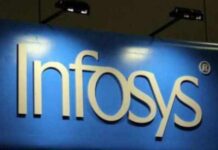
Dictionaries define Loyalty as-‘unswerving in allegiance’:
- Faithful in allegiance to one’s lawful sovereign or government
- Faithful to a private person to whom faithfulness is due
- Faithful to a cause, ideal, custom, institution, or product
The first definition is probably understood better in the colonial era, or even now if we look at elections around the world. The second one is more about personal relationships. The third one has a wide-ranging meaning and seems relevant for organisations.
The questions that organisations or leaders must ask themselves are – What is loyalty? Which of the above definition of loyalty is most relevant? Is it loyalty to an institution or loyalty to a cause that is more important? If it is for a cause, then wouldn’t longevity with an organisation be a natural outcome? If longevity with an organisation is an outcome, then shouldn’t organisations focus on reinforcing ‘the cause’ it stands for?
Instead of asking, how do we ensure employees are loyal to the organisation? the question that should be asked is how do we align employees’ and organisation’s cause/purpose? This requires certain pre-requisites that must be met:
- Cause/ purpose must be much larger than just a product/service the organisation deals in. For example Nike – It is not about shoes, as it is about athletes– it’s the spirit
- Cause/purpose of the organisation must be articulated in simple terms and reinforced over and over again
- Walk the talk – flows from top to bottom and reinforced bottom-up
Needless to say, it is the implementation of the aforementioned prerequisites that holds the key for organisations to be true differentiators. It is the third pre-requisite that organisations can influence to bring their purpose to life; enabling its people to make their work meaningful.
Various research has reinforced that people thrive in an environment where they feel seen, heard, and appreciated and their work gets recognised, where their talent and creativity is leveraged for innovation. It is here that business strategy meets talent. It is here that strategy becomes reality.
Let’s take an example of a professional services organisation that flourishes on its people’s deep knowledge of the subject and understanding of the clients’ needs.
In such organisations, what do you think will be more aligned to its core purpose – a loyalty program that encourages peer-to-peer knowledge sharing or recognising time spent with the organisation? Before responding to this, it is important to note that more than a majority of its people are millennials.
Keeping this context in mind, I believe it is the former which is more relevant. The former resonates with the essence of the knowledge industry that has knowledge at its bedrock and knowledge sharing both documented and tacit as the key pillars of its success.
A peer-to-peer session would allow sharing of tacit knowledge which is equally important (if not more). The former is more relevant and backed by research that states that millennials want to work at an organisation that lives its purpose. It is this sense of shared purpose that would make them go the extra mile in making connections not just within the organisation but also with clients.
Creating a differential experience for those ‘loyal-to-a-cause’ employees is the next leap forward. One does not have to look far and beyond for examples of differential experience – Starbucks loyalty card, Amazon prime membership, Sephora loyalty program are a few examples.
These are not only about monetary benefits such as discounts/freebies but also about ‘preferential treatment’ such as early delivery, make-up trials, preview sales et cetera. Irrespective of the mode and method of recognition, the constant messaging to the customers is – ‘you are a priority.
It is this essence that organisations must capture when designing their loyalty programs. Going back to the example of the professional services organisation – A shadowing experience with a senior leader, giving priority access to a prestigious client event, access to an industry network, sponsoring lunch with the project manager who does not belong to one’s business unit, sponsoring a meal with a peer of another business unit, and volunteering for a social cause of interest – would be more rewarding for a loyal-to-a-cause employee.
HR teams can also leverage such networks and co-opt business people in designing and operationalising employee engagement initiatives and talent interventions.
In the end, loyalty is not about a particular transaction but a series of interactions that emphasises alignment between employee and organisation’s purpose/cause. There is no doubt that loyalty is a two-way street and it is up to the leaders how they ‘show the talk’.
Shruti Babbar is currently managing total rewards and performance enablement at EY India. She has more than a decade’s experience in creating and driving talent strategies best aligned with business needs. Over these years, she has adorned multiple roles in HR. Shruti holds a master’s degree in HR from the London School of Economics.








